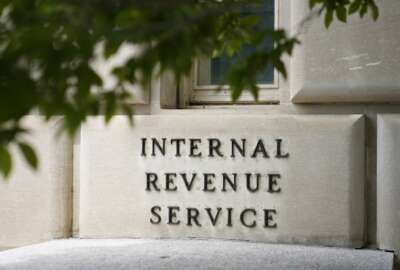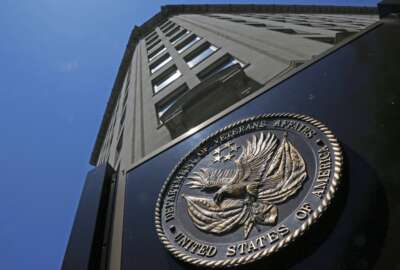Hubbard Radio Washington DC, LLC. All rights reserved. This website is not intended for users located within the European Economic Area.
White House budget breakdown: FY 2015 agency-by-agency funding levels
President Barack Obama released his fiscal 2015 budget blueprint Tuesday. The budget proposal lays out the administration's spending priorities for next year, b...
Federal News Radio staff
President Barack Obama released his $3.9 trillion fiscal 2015 budget blueprint Tuesday. The budget proposal lays out the administration’s spending priorities for next year, but Congress holds the final purse strings and is likely to balk at several of the proposals.
Overall, the Obama budget conforms to spending constraints negotiated by Congress as part of a two-year budget deal lawmakers agreed to late last year. But it also proposes freeing up an additional $56 billion in funding — to be split evenly between Defense and nondefense — to pay for other initiatives.
Track the Obama’s administration’s proposed funding levels for federal agencies below.
Agriculture
|
Proposed 2015 Funding |
Comparison |
Highlights/details |
$23.7 billion |
▼ 7.9 percent below FY 2014 enacted levels |
The budget proposal doubles funding for rural broadband access and provides funding for new multidisciplinary agricultural research institutes. The proposal also calls for a 15 percent cut in the $9 billion-a-year farm subsidy program. |
Commerce
|
Proposed 2015 Funding |
Comparison |
Highlights/details |
$8.8 billion |
▲ 6 percent above FY 2014 enacted levels |
The administration proposes $2 billion for the National Oceanic and Atmospheric Administration to develop next-generation weather satellites and $753 million to support research and development by the Census Bureau for the 2020 census. The budget also includes $680 million for National Institute of Standards and Technology laboratories. |
Defense
|
Proposed 2015 Funding |
Comparison |
Highlights/details |
$495.6 billion |
▼ 0.4 percent below FY 2014 enacted levels |
The Army would shrink to 440,000-450,000 troops by 2019, making it the smallest since just before the U.S. entered World War II. The Marine Corps would shrink from 190,000 troops to 182,000. The budget proposal also proposes new out- of-pocket charges for TRICARE beneficiaries and seeks to slightly reduce over time the military basic housing allowance. |
Education
|
Proposed 2015 Funding |
Comparison |
Highlights/details |
$68.6 billion |
▲ 1.9 percent above FY 2014 enacted levels |
The budget proposes $200 million for the ConnectEDucators initiative, which seeks to provide digital learning resources to teachers. The President’s budget would also provide an additional $170 million to the department to lead a “cohesive and robust initiative” reorganizing the government’s STEM initiatives. |
Energy
|
Proposed 2015 Funding |
Comparison |
Highlights/details |
$27.9 billion |
▲ 2.6 percent above FY 2014 enacted levels |
The budget proposal calls for $11.7 billion for nuclear security, a 4 percent increase above current budget levels. The majority of that spending would go to a joint effort between the Defense Department and the National Nuclear Security Administration to maintain a nuclear deterrent program. |
Environmental Protection Agency
|
Proposed 2015 Funding |
Comparison |
Highlights/details |
$7.9 billion |
▼ 3.7 percent below FY 2014 enacted levels |
The budget calls for EPA to undertake a “focused examination of its workforce needs.” The restructuring will leave the agency with its lowest staff levels in more than a decade, EPA administration Gina McCarthy said. |
Health and Human Services
|
Proposed 2015 Funding |
Comparison |
Highlights/details |
$73.7 billion |
▼ 7.6 percent below FY 2014 enacted levels |
The budget proposal would provide $30.2 billion for the National Institutes of Health to promote innovative medical research. The proposal also fully funds implementation of the Affordable Care Act. |
Homeland Security
|
Proposed 2015 Funding |
Comparison |
Highlights/details |
$38.2 billion |
▼ 2.8 percent below FY 2014 enacted levels |
The proposed budget includes $549 million to support the department’s EINSTEIN cyber-intrusion and detection system as well as the Continuous Diagnostics and Mitigation program. The budget also calls for the creation of a Federal Cyber Campus to co-locate key civilian cyber agenices “to promote a whole of government approach to cybersecurity incident response.” In addition, the budget provides funding to hire 2,000 additional Customs and Border Protection officers. |
Housing and Urban Development
|
Proposed 2015 Funding |
Comparison |
Highlights/details |
$46.7 billion |
▼ 3.3 percent below FY 2014 enacted levels |
The budget proposes additional investments in the federal strategic plan for combating homelessness. It calls for $2.4 billion for homeless-assistance grants and $75 million to expand funding for the HUD-Veterans Affairs Supportive Housing (HUD-VASH) program. |
Interior
|
Proposed 2015 Funding |
Comparison |
Highlights/details |
$11.5 billion |
⇔ No change from FY 2014 enacted levels |
The budget also would allocate $900 million to support land and water conservation programs that protect parks, wildlife refuges, forests, rivers, trails, battlefields, historic and cultural sites. The budget also includes $300 million in federal funding as part of a three-year, $1.2 billion plan to upgrade and restore national parks in honor of the 100th anniversary of the National Park Service in 2016. |
Justice
|
Proposed 2015 Funding |
Comparison |
Highlights/details |
$27.4 billion |
▲ 0.7 percent above FY 2014 enacted levels |
The proposed budget would provide $8.5 billion in funding to maintain federal prisons and detention facilities and calls for the creation of a new FBI laboratory in Alabama to analyze bombing attacks. The budget would also provide $13 million so the FBI can maintain improvements made to the National Criminal Instant Background Check system. |
Labor
|
Proposed 2015 Funding |
Comparison |
Highlights/details |
$11.8 billion |
▼ 1.7 percent below FY 2014 enacted levels |
The proposed budget aims to streamline federal training programs. Currently, the are more than 40 such programs spread across agencies. The proposal also seeks nearly $1.8 billion for the department’s worker-protection agencies. In addition, the proposed budget aims to save $340 million over 10 years by making changes to the workers’ compensation program for federal employees. |
Social Security Administration
|
Proposed 2015 Funding |
Comparison |
Highlights/details |
$12.1 billion |
▲ 3.4 percent above FY 2014 enacted levels |
The budget would make investments in SSA’s customer-service operations, proposing $100 million in a modernization initiative to make improvements in online and in- person services. The proposed budget would also fund improvements in coordination between the agency and the Office of Personnel Management to cut back on overpayments . |
State and USAID
|
Proposed 2015 Funding |
Comparison |
Highlights/details |
$42.6 billion |
▼ 0.2 percent below FY 2014 enacted levels |
The budget proposal includes a $4.6 billion request to secure overseas personnel and facilities, including $2.2 billion in security construction at U.S. diplomatic missions. |
Transportation
|
Proposed 2015 Funding |
Comparison |
Highlights/details |
$14 billion |
▲ 2.2 percent above FY 2014 enacted levels |
The proposal includes $302 billion over the next four years for road, bridge, rail and transit programs. The administration’s budget request would also ramp up spending on the Next Generation Air Transportation System to overhaul the air traffic control system nationwide. The program would get an extra $186 million, raising the total “NextGen” budget for next year to about $1 billion. |
Treasury
|
Proposed 2015 Funding |
Comparison |
Highlights/details |
$13.8 billion |
▲ 5.1 percent above FY 2014 enacted levels |
The bulk of proposed additional funding goes to the Internal Revenue Service. The budget calls for IRS to receive $12.5 billion — a $1.2 billion increase above current levels. That would fund customer-service improvements at the agency, including increasing the number of taxpayer phone calls the IRS is able to answer, from about 61 percent of calls to 80 percent. The budget would also up the agency’s enforcement budget, which the administration estimates generates an additional $35 billion in tax revenue. |
Veterans Affairs
|
Proposed 2015 Funding |
Comparison |
Highlights/details |
$65.3 billion |
▲ 3 percent above FY 2014 enacted levels |
The bulk of the department’s discretionary spending — $56 billion — would go toward veterans’ medical care. Obama seeks a 2.7 percent increase in medical spending as the number of patients treated at VA hospitals and outpatient clinics continues to rise. Obama seeks to spend $312 million on technological improvements in hopes of eliminating a longstanding backlog of disability claims. |
Copyright © 2024 Federal News Network. All rights reserved. This website is not intended for users located within the European Economic Area.
Related Topics




